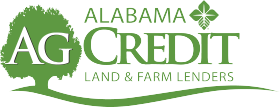Using Collateral for a Farm or Land Loan Down Payment
How much will your down payment be for your farm or land loan? This is one of the most frequently asked questions lenders get. However, the answer isn’t as straightforward as it may seem. The amount needed for your down payment will depend on several factors, such as the type and quality of your collateral.
What is Collateral?
Collateral is a tangible asset that’s used as a portion of your down payment for a property, such as land or a farm. If the borrower fails to honor the terms of the loan by not making payments, putting the loan into default, the collateral will be used to help repay the loan.
When taking out a loan, borrowers sign a promissory note that states they will do whatever is required to make sure their loan is repaid. This may include an agreement that certain owned assets can serve as a source of repayment if the loan goes into default, not just the identified collateral.
What is a Tangible Asset?
When taking out a real estate loan, additional qualifying real estate that has been paid off in full is a tangible asset that can be used as collateral. What’s important when it comes to collateral is that the value of the asset may remain more or less consistent for the length of the loan, which is why real estate is the preferred option.
How Much is a Down Payment with Collateral?
The down payment that will be required for your specific farm or land loan will depend on many factors. But, in general, if you leverage your equity in owned real estate to use as collateral, you can make a smaller down payment. In that case, the total amount that you’ll need for your down payment will depend on the value of the collateral. Let’s look at an example to explain:
Down Payment and Collateral Calculation Example*
Nicole wants to buy 40 acres of bare land for $100,000. However, lenders won’t usually offer a loan for the total value of the new property. Instead, they’ll loan up to around 70% of the total property value, which would be $70,000 in this example.
The down payment on farmland is usually around 30%. That means Nicole will need a down payment of $30,000 for her $70,000 loan. If she’d like to, and she has the funds, she can pay this amount in full. As another down payment option, Nicole could use other owned real estate to decrease the amount of cash she needs for her down payment.
Nicole already owns the adjoining 15 acres, which are valued at $2,500 an acre, making for a total value of $37,500. Nicole also has $5,000 in cash saved up to contribute to the down payment. The means she can pledge the 15 acres she owns as additional collateral to buy the new property instead of scraping together her savings to pay the total $30,000 out of pocket.
A lender uses a loan-to-security (property) value ratio to determine the amount of risk they’re willing to assume in a loan. To calculate this ratio, the lender takes the total loan amount and divides it by the appraised property value plus the total value of any collateral pledged. Nicole’s loan is $95,000 (after subtracting the $5,000 she has in cash), so she needs at least an additional $35,700 to get to the 70% loan-to-value security position, which she can do by using the 15 acres as collateral.
Loan-to-security value = $95,000 = 70%
$100,000 + $35,700
Nicole decides to use the 15 acres she owns toward the down payment for the 40 acres. The seller will receive the $5,000 she offers as a down payment in cash, making the loan amount $95,000. The lender will also place a mortgage on the 15 acres and the land purchased in order to meet the loan-to-security value ratio.
*This example does not include any fees that may be charged by the lender for the appraisal, title work, or origination documents. Additional funds would be needed to cover any fees assessed. A lender will outline these fees in advance but be sure to ask about them during the process, so you know the full amount owed at the time of purchase.
Learn More About Down Payments
To learn more about the land or farm loan application process, contact one of our local loan officers. We’d be happy to help you through the process and answer any questions you have about down payments.
